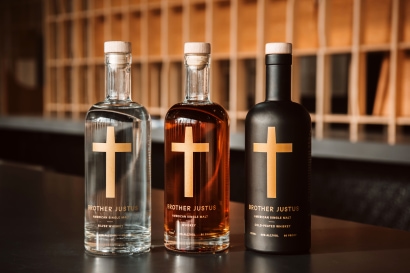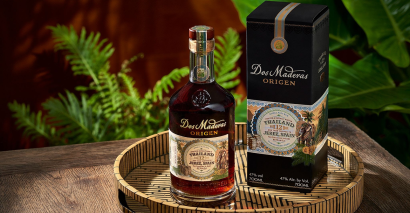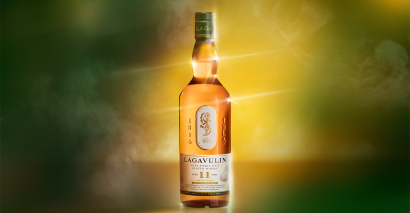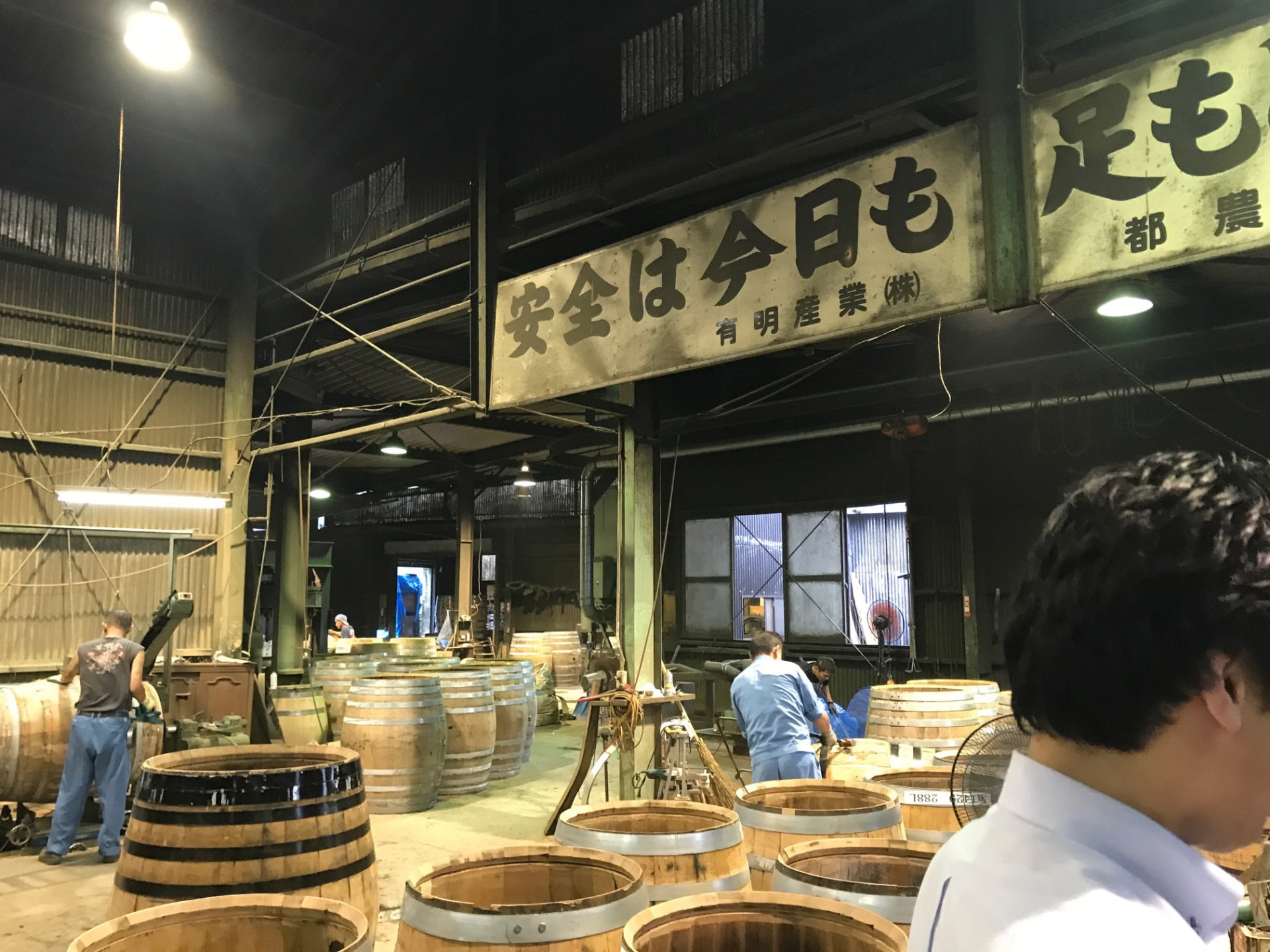
The Miyazaki Prefecture-based Ariaki Cooperage is one barrel-maker working with players outside of Japan, having previously collaborated with Glendalough Distillery. (PHOTO BY: KEVIN KEENAN)
Mizunara casks have been a staple of Japanese whisky aging for quite some time, but it wasn’t always this way. The much-revered mizunara oak got its start out of necessity rather than design. In the early days of Japanese whisky making back in the 1920s, first-fill bourbon and sherry casks were the barrels of choice. But that changed during World War II, when it became all but impossible to obtain those barrel types. Left with no other choice, Japan’s whisky distillers looked to native oak for their casks. Now, nearly a century later, it’s the American and European distillers who seek out mizunara oak casks from Japan, enthralled by the notes and characteristics that it can contribute to a whisky.
It all started nearly a decade ago on the craggy shores of Islay where, in 2015, Bowmore released a limited-edition single malt that utilized Japanese casks. That was followed quickly by Washington-based Bainbridge Organic Distillers’ debut of Yama, a single-grain whiskey aged entirely in mizunara casks—the same expression that won the distillery Whisky Advocate’s 2016 Craft Whisky of the Year award. Mizunara reached the Emerald Isle in 2018, with Glendalough releasing a 13 year old finished single malt, which was named Whisky Advocate’s No.-18 Whisky of the Year. Canadian whisky joined the party in 2019, with Heaven’s Door finishing sourced Canadian liquid in mizunara for its inaugural Bootleg Series expression. Angel’s Envy Mizunara Finished bourbon soon followed the subsequent year.
So why all the fascination? Mizunara casks are said to impart very subtle flavors, many of which are cornerstones of the Japanese style. Core notes include sandalwood—the aroma that inspired Japan’s whisky makers to call them “temple whiskies” because of their incense-like notes—as well as subtle, almost herbaceous spices, floral sweetness; and toasted coconut. Since Japanese whisky shares many of the same characteristics as scotch single malts and blends, those are also a natural fit for mizunara casks. The subtle spiciness and incense-like notes also act as a perfect partner for anything with a rye-dominant mashbill, working particularly well with high-rye bourbons and Canadian whiskies. Mizunara’s floral notes and airy character are also well-suited for Irish whiskeys, which are typically light and on the sweeter side.
One overlooked characteristic of mizunara is its use in expressions with multiple finishing casks. Its subtlety lends itself well to working alongside other casks without completely dominating them. One such example is Barrell Craft Spirits’s (BCS) 95-point Vantage, our No.-3 Whisky of 2022. Vantage is a blend of bourbons finished in toasted American, French, and mizunara oak casks. Chief of distillery operations at BCS Tripp Stimson argues that mizunara’s notes are “very unique” and “especially noticeable” in bourbon, as they aren’t typically found in traditional, non-finished bourbons. “The low tannin concentration in mizunara allows for extended maturation without the concern of over-oaking the whiskey,” he explains, noting that it added a new layer of flavors that complement the rest of the blend.
But working with mizunara is notoriously difficult. The first hurdle a distiller must clear is availability. Japanese oak grows at a much slower rate than its American and French cousins, taking 200–500 years to reach maturity. Harvesting these trees is also closely monitored and regulated by the Japanese government to protect against deforestation. To make matters even more challenging, the oak is also highly sought after by furniture makers. Coopers, like Ariaki Cooperage in Miyazaki Prefecture, often have to buy mizunara wood at auction, and the competition is quite fierce. Expensive wood for coopers means expensive barrels for distillers, and recently mizunara casks have skyrocketed in price. They reportedly cost as low as $3,000 per barrel in 2021, but most American distillers would have to shell out around $4,500. Now the price has nearly doubled, costing upwards of $6,000 per cask. Naturally, this places them outside the reach of many craft distillers.
Sourcing a cask is just the tip of the iceberg. The mizunara tree’s gnarled and twisted bark makes fashioning straight planks for barrel staves difficult. It’s far more porous than other oaks, which leads to a greater water retention. The water content means that seasoning can take longer than usual, and can also make toasting and charring more difficult. The casks are also prone to leaking, which can be catastrophic if not caught in time. That problem requires special care and attention to ensure that precious whisky is not lost during maturation.
Some whisky makers alleviate the difficulty by working closely with coopers throughout the entire process. Kentucky-based blending house Four Gate Whiskey Company collaborated with Louisville barrel maker Kelvin Cooperage while finishing its 93-point Majestic Wood Series Mizunara Finished bourbon. “[They] reviewed and inspected every barrel…making sure they were tight and ready to go. We were lucky not to experience any significant loss at all on the barrels,” said Bill Straub, chief blending officer at Four Gate. To combat leaks, Straub puts a premium on starting with new barrels and suggests splitting the finishing process into two or more shorter stages. “Second [fill] barrels or extended aging would no doubt be a different story.”
While mizunara casks can be challenging, they can be a real star when it all comes out right. Their rising presence in whiskies outside of Japan means that all drinkers can experience their exotic and potentially unexplored flavors, regardless of their preferred whisky style. To help you take the plunge if you’re a newbie or explore further if you want more, we’ve put together a list of mizunara cask-finished whiskies from around the globe and across many styles. Give one a try—or a few, if you’re feeling adventurous—and let us know what you think. Happy exploring!
 92 Angel’s Envy Mizunara Finished Bourbon, 48.9%, $350
92 Angel’s Envy Mizunara Finished Bourbon, 48.9%, $350
The Louisville, Kentucky-based Angel’s Envy was a relatively early adopter of mizunara oak in the American scene. This one, launched in 2020, was finished for 2 years in new charred mizunara barrels.
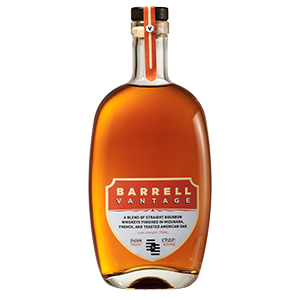 95 Barrell Vantage Blended Bourbon, 57.22%, $90
95 Barrell Vantage Blended Bourbon, 57.22%, $90
Mizunara was just one of three cask types used to finish Barrell Craft Spirits’s Vantage. It was named our No.-3 Whisky of 2022.
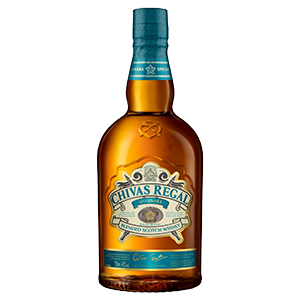 89 Chivas Regal Mizunara Blended Scotch, 40%, $50
89 Chivas Regal Mizunara Blended Scotch, 40%, $50
This blended scotch spent a few months in mizunara oak prior to bottling.
 91 Dewars 8 year old Japanese Smooth Blended Scotch, 40%, $25
91 Dewars 8 year old Japanese Smooth Blended Scotch, 40%, $25
Launched in 2021 as part of a Dewar’s 8 year old series of whiskies finished in casks from around the world, this one features mizunara. It garnered the highest score in the series, which thus far has also included finishings in calvados, mezcal, and port casks.
 95 Dewar’s Double Double 21 year old Mizunara Oak Cask Finished Blended Scotch, 46%, $150
95 Dewar’s Double Double 21 year old Mizunara Oak Cask Finished Blended Scotch, 46%, $150
The Double Double series encompasses some of Dewar’s most exclusive blends, all of which carry a hefty age statement and feature a cask finish of some kind. This 21 year old blend spent up to 6 months in mizunara oak casks. Rated 95 points by our tasting panel, this whisky finished in 7th in our Top 20 Whiskies of 2023 list.
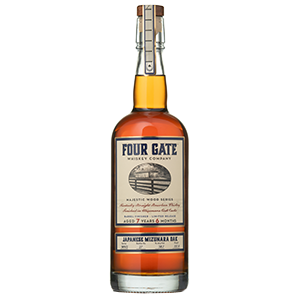 93 Four Gate Majestic Wood Series Japanese Mizunara Oak Finished Bourbon, 58.7%, $250
93 Four Gate Majestic Wood Series Japanese Mizunara Oak Finished Bourbon, 58.7%, $250
This 7 year old Kentucky bourbon underwent two separate rounds of mizunara finishing, each lasting a period of 6 and 8 weeks.
 91 Glendalough 7 year old Mizunara Finished Irish Single Malt, 46%, $100
91 Glendalough 7 year old Mizunara Finished Irish Single Malt, 46%, $100
Based in the Wicklow Mountains of Ireland, Glendalough Distillery previously released two limited-edition mizunara finished single malts aged for 13 and 17 years. Its 7 year old single malt, which is more widely available, spent up to a year in mizunara casks.
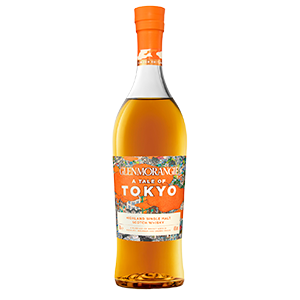 NR Glenmorangie A Tale of Tokyo Single Malt Scotch, 46%, $103
NR Glenmorangie A Tale of Tokyo Single Malt Scotch, 46%, $103
Glenmorangie’s “A Tale of” is an experimental line that features some of Dr. Bill Lumsden’s most innovative creations. The newest entry is finished in mizunara casks, and was inspired by one of Dr. Bill’s trips to Tokyo.
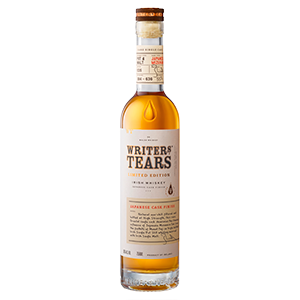 93 Writers’ Tears Japanese Cask Finished Irish Blend, 55%, $130
93 Writers’ Tears Japanese Cask Finished Irish Blend, 55%, $130
Like many that came before it, this expression from Walsh’s Writers’ Tears is a blend of Irish single malts and single pot still whiskeys. This one, though, spends another 9–12 months in mizunara oak casks, contributing to notes of exotic wood, nuttiness, ripe plums, pepper, and cloves.


